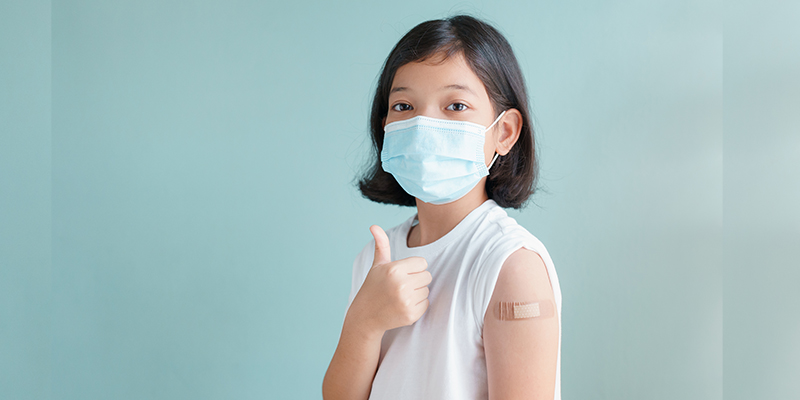It is important to know what to expect after your child is vaccinated. Vaccines are safe and effective, but they can have side effects like any medication. Most side effects are minor, such as a sore arm or fever, and go away on their own, but some can be more serious.
By being aware of the potential side effects and knowing what to do if they occur, you can help keep your child safe and healthy after vaccination.
It is essential to closely monitor your child for any post-vaccination symptoms or side effects and to seek medical care if your child is not responding to at-home care.
This article will discuss the importance of post-vaccination care for children, as well as some tips for managing common side effects.
Why is it important to get vaccinated?
Before we discuss the post-vaccination symptoms and post-vaccination care, hopefully, you will be convinced why you should not ignore getting the child vaccinated—this important medical requirement for your child for a better and healthy future.
Vaccines are one of the most important tools in fighting against preventable diseases. They are safe and effective and help protect children from various diseases.
The immunity system of babies is not fully developed at the time of birth, and that’s why they are at a higher risk of getting infected. Vaccines help children to develop the natural defense of their bodies.
It is normal to feel worried when your child gets vaccinated. Will it hurt them? What are the side effects? How will their immune system react? Rest assured, you can take steps to ensure your child remains healthy and happy after getting vaccinated.
What are the side effects after vaccination?
A few common side effects are given below after vaccination for children.
- Soreness, redness, or swelling at the injection site
- Rash on the site or in very rare cases on the body
- Low-grade fever
- Tiredness
- Headache
- Nausea
- Vomiting
- Diarrhea
These side effects are typical and are a sign that the child’s body is building immunity to the disease. The side effects usually go away within a few days. Suppose your child experiences any severe side effects, such as allergic reactions, seizures, anaphylaxis, difficulty breathing, swelling of the face or throat, or a high fever. In that case, you should contact your child’s doctor immediately.
How can I take care of my child after they get vaccinated?
After your child gets vaccinated, it is vital to take care of them and monitor them for any side effects, which tend to be minor and resolve on their own. But in rare cases, they can be more serious. Here are some tips on how to take care of your child:
Symptoms and post-vaccination care
Standard post-vaccination symptoms and care
If the injection site becomes sore or red or swells up, provide the following care to the child:
- Comfort your child
- Place a cold cloth on the site.
- Move their arm or leg where the injection is given.
- Keep them warm and comfortable.
- With recommendations from the paediatrician, you can administer painkillers.
Additional post-vaccination symptoms and care
In case of flu-like symptoms like tiredness, headache, mild post-vaccine fever, upset stomach, pain in muscles, or swelling of lymph nodes, provide care as per the following tips:
- Do not cover them with extra clothing.
- Give medications as advised by the doctor.
- Give them plenty of fluids to drink.
- Let the child get complete rest.
- Give them a pain reliever if they are experiencing any pain.
- If they are experiencing a high fever, sponge them down with cool water.
Severe post-vaccination symptoms and care
Normally there are no severe reactions seen after vaccination. Still, if you observe the following, seek immediate medical help on the kind of care and medication to be given to the child.
- Redness or itchy red bumps on the body.
- Very high fever.
- Allergic reactions
- Seizures/ Convulsions
- Anaphylaxis
- Develops facial swelling.
- Stiffness and pain in joints.
- Shortness of breath or tightness in the throat.
What are the risks of not getting vaccinated?
The risks of not vaccinating children are well-documented. According to the Centers for Disease Control and Prevention (CDC), unvaccinated children are at an increased risk for developing serious illnesses, such as measles, mumps, and rubella.
Additionally, unvaccinated children can also put others at risk for these diseases, as they can easily spread them to others who are not vaccinated, including family members, friends, and members of the community.
The risks of not vaccinating children are significant and should be considered carefully before deciding to forgo vaccinations.
It is recommended that all children be vaccinated according to the recommended schedule.
Conclusion
It is important to properly take care of a child after they have received a vaccination. This includes consulting the doctor, monitoring the child, and recognising signs of complications. By taking these steps, parents can ensure that their child gets the best care after a vaccination.

